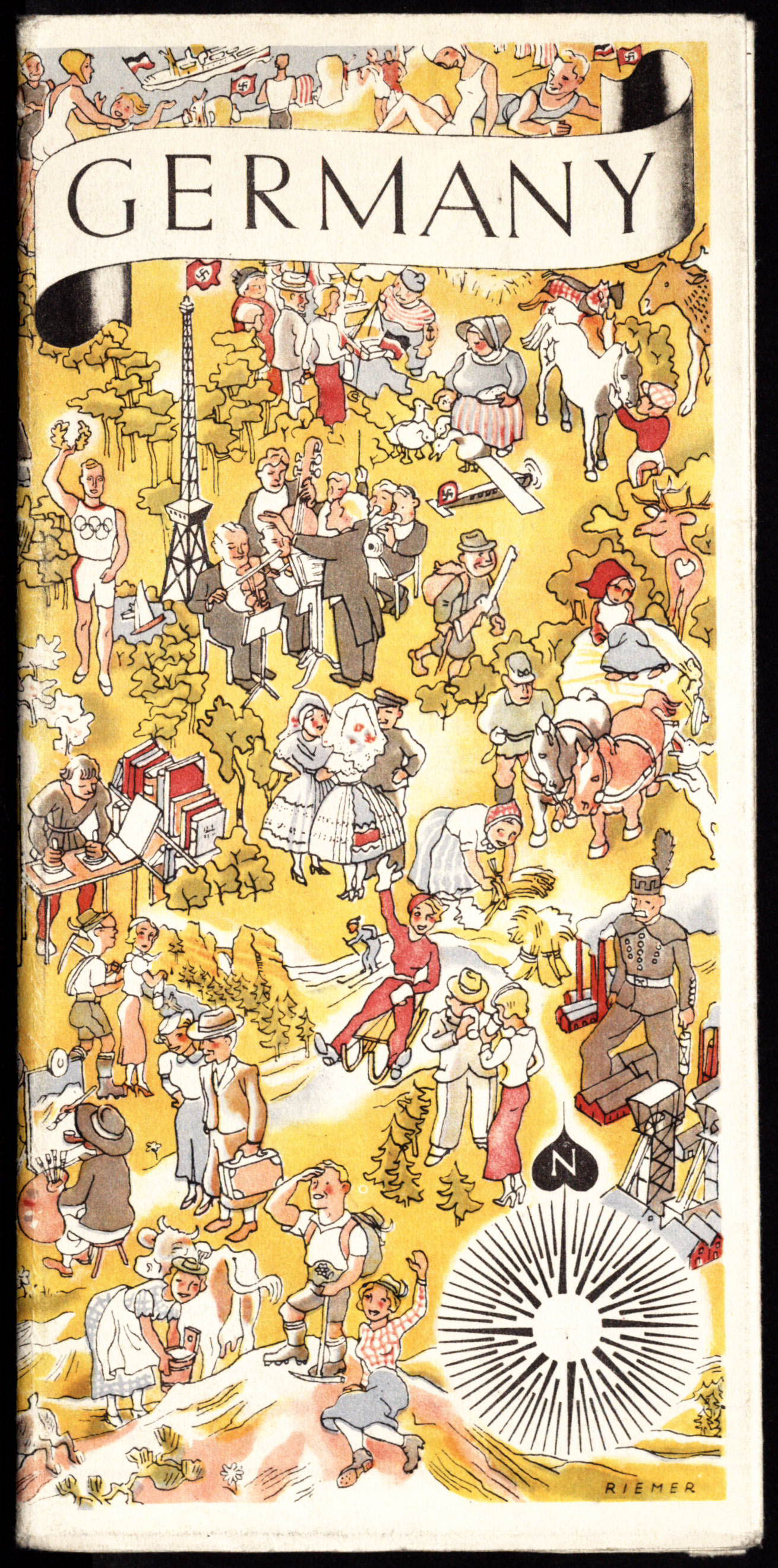International Relations
As more people struck out on adventures abroad and afar, international relations became an even more integral part of tourism and daily life than it had before. The debates and documentation surrounding this issue can clearly be seen in the government documents and brochures that are held in Leisure, Travel & Mass Culture: The History of Tourism, as well as in the individual accounts of holidaymakers and advice from travel agents.
Even in the early days of organised mass travel, the potential of travel agents, with their knowledge of foreign climes, was recognised and harnessed by government agencies. In 1884, John Mason Cook of Thomas Cook and Son was asked to assist in the attempt to retrieve General Gordon from his precarious situation in rebellious Khartoum (and advertised the opportunity to his customers in the Thomas Cook periodical Excursionist Home and Foreign Tourist Advertiser, American Edition, Series 34, Number 9). He also later went on to arrange a tour of Palestine for Kaiser Wilhelm II in 1898, though he unfortunately died of dysentery during his efforts. These events show that the relationship fostered between tourist agencies and the foreign countries they visited were being recognised and tourism itself was beginning to be seen as an important tool in international relations.
As the world opened up, tourism became an integral part of many countries’ incomes and relations between countries following wars and disagreements began to seriously impact on economic development, as well as international policy. This can be seen clearly in the documents from The National Archives, UK, most notably in those dealing with recovery from the Second World War. The British government instigated a number of investigations and reports into the state of tourism in the country following the war, examining the attitude of the public towards holidaying, the provision of accommodation for tourists and the means to increase tourist traffic to Europe to bolster relations and the economy (see the Post-war Tourist Industry report). Work was put both into the recovery of British tourism, with the refurbishment of hotels and destinations, and into the recovery of Europe in general, with determined encouragement through vouchers and other schemes directed at the British public to ensure travel into war-ravaged Europe.
It was also important to bolster relations with the wealthy United States and governments sought to encourage much-needed US revenue into the continent to aid economic recovery by actively producing advertising material for the US market (see the leaflets from Michigan State University). This trend was not just linked to Second World War recovery, however, as the National Socialist government of post-First World War Germany sought to develop the country, once more, into an economic and cultural stronghold during the inter-war period. These attempt can be seen in promotional tourist brochures from Michigan State University, in particular the 1935 Germany leaflet, which proudly displays illustrations of Germany’s great cultural traditions alongside Nazi political symbolism.
At the same time as tourism was being harnessed to help recover from war, is was also being used to engage with the enemy during times of trouble. Michigan State University Libraries hold documents that tackle both the Soviet Union during the Cold War and the occupation of Japan by American troops following the Second World War. Whilst an American written guidebook on the Soviet Union encourages the tourist to investigate behind the scenes of the Soviet Union and to be always on guard for potential Communist tricks (First Comprehensive Historical and Tourist Guide Book to the Holy City of Russians, Moscow), Okinawa: Keystone of the Pacific, a guidance booklets for American troops stationed in Japan, encourages them to acknowledge the island customs, treat the inhabitants well and, above all, represent the United States favourably. The Soviet Union guidebook is in particular a fascinating insight into Cold War politics manifesting as a tourist guide. Visitors are advised that “if the USSR has granted you a visa, this means that the Soviet Government expects to derive some advantage from your visit”. It is generally believed that the tourists will be used as propaganda for the Soviet state and they are encouraged to investigate as much as possible to get a feel of the real Russia.
Both collections of documents are great examples of the use of tourism as an advertisement for favourable international relations, a trend which can be identified in many of the guidebooks, brochures and leaflet featured in Leisure, Travel & Mass Culture: The History of Tourism.
View all documents with this theme here.



